How perfect that our first guest post is on missing things in life, since last week I missed posting. For the love. If you didn’t notice, please don’t tell me. I feel like such a goober- I was in the midst of e-mails and conversations about sequencing the guest posts, and I totally. forgot. to actually. post. D’oh.
Let’s get on with it, then. Our first guest post is from my friend Jason. Jason is married to my dear pal Sarah, and he is extremely adept at pointing things out. Even though I’ve only known Jason for a few years, I can already tell we will be friends for much longer. Here are his thoughts on “Why We Miss The Greatest Lessons.”
Why We Miss The Greatest Lessons
“Every time you call us to talk you miss an exit or get lost.”
This is my parents talking to me the other day. They speak the truth.
In Los Angeles the car is your office and I make phone calls while I drive (using “hands free” headphones thankyouverymuch) like it’s my job…because it is.
So every time I call my folks to talk I inevitably miss my exit and they have to listen to me say something along the lines of “…DANG IT! Where am I??”
I hate missing exists. I like to make the most of my time, so it drives me (no pun intended) crazy when I miss an exit…especially when I don’t realize I’ve done it until 4 or 5 miles down the road.
But I always miss an exit for the same reason – I was focused on something else. Of course, this doesn’t just happen with driving. It can happen with just about anything.
For example, I was meeting with one of my mentors a few weeks ago and the subject of relationships came up. My mentor asked the question: have you ever met someone who just wasn’t good for you? Someone who wasn’t safe?
During our discussion she gave me a list of indicators of what constitutes an “unsafe” person. After she handed me the piece of paper I looked at it for a while with her sitting across from me, watching me read. Here were a few examples from the list:
Unsafe people stay in parent/child roles instead of relating as equals.
Unsafe people are stagnant instead of growing.
Unsafe people gossip instead of keeping secrets.
Eventually she asked me to read each one aloud…but not so that I could figure out whether it applied to others in my life, but to discuss whether or not it applied to me…and then she added a piece of instruction that I’ll hopefully never forget.
She said, “…and do your best not to think about anyone else but you.”
I’m guessing this doesn’t apply to everyone, but sometimes I’m really good at applying lessons that come my way to other people. When I listen to a podcast on leadership I might think, “I wish he were here to listen to this.” When I read a book, or (hypothetically speaking) am given a piece of paper with indicators of being an unsafe person I think, “this would really be helpful for so-and-so.”
I miss exists on the highway because I’m focused on talking with my folks. I wonder: how many lessons in life am I missing because I’m so busy applying these lessons to someone else?
How much kinder would I be if I stopped thinking about how unkind others are?
How much more joyful would I be if I stopped resenting others for not being joyful?
How much more love would I experience if I could forgive others for being unloving?
Could it be that the greatest lessons we’re meant to learn can only be learned on the same spiritual bandwidth that we waste trying to control other people?
This is especially tricky in leadership. We spend so much time meeting with people and helping them solve their problems, or pointing out problems we think they should solve. After a while that becomes our modus operandi – our natural way of relating to people. We develop the mental habit of applying lessons to other people so well that we forget to apply the lesson to us.
For me, it’s so much easier to blame others for my problems. Any struggle with my leadership team? It’s gotta be so-and-so’s fault. Marriage problems? The wife must be to blame. Focusing on my own issues requires focus, courage, humility and a concentrated effort to become someone different. It’s way easier to just outsource my problems onto someone else’s plate.
I think that’s perhaps the most powerful aspect of The MOXY Project, that it helps people begin focusing on the one person they have the most influence with: themselves.
That’s one of the main reasons my partners and I created Spark Good Studios: to create spaces and media to empower people to become proactive in the ways that they can, rather than blaming others for their own missed exits. With our flagship service called “Sparks” we ask the question, “What’s one risk I can take this week to either make myself a better person or the world a better place?”
It’s tangible.
It’s immediate.
It’s not about someone else.
So what about you? What issues are you avoiding in your life because you may be too busy complaining about someone else? What opportunities or learnings are you not going to miss because you’re going to be focused on you?
The good news is, even when we miss our exits, we can always find our way back. It’s never too late to focus on what we can actually change and to pay attention to what Life, God or even our own hearts are trying to teach us.
Lead your life. Don’t miss it.
Jason Jaggard is a husband, writer, speaker, and social innovator for cultural change in Los Angeles, CA. He is the creator of Sparks (http://www.sparkgood.com), a 5 week social experience that enhances initiative and creativity for friends, non-profits, schools and businesses. He’s the Founder and CEO of Spark Good Studios, a company passionate about creating media, learning environments and communities that unleash human potential. Jason is also an adjunct professor for Pepperdine University. He can be found at @sparkgood and @jjaggard on Twitter.

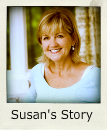


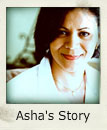



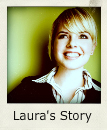
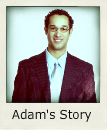
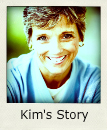
Leave a Reply